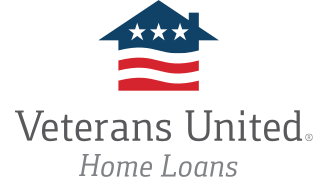Applying for a VA Loan with a Co-Borrower
See the benefits and requirements of using a VA loan with a co-borrower in what's often called a joint VA loan.
Bringing in a co-borrower for your VA loan can be a smart move. A co-borrower can help you qualify for the loan, or they could allow you to qualify for a lower interest rate and thus a more affordable mortgage in the long run. In some cases, you may also be able to borrow more cash with a co-borrower.
Are you thinking about applying for your VA loan with a co-borrower? Here’s what you need to know.
Can a VA Loan Have a Co-Borrower?
The VA does allow for co-borrowers, including ones who don’t meet the VA loan program’s military service requirements. Adding a co-borrower can help both during the mortgage process, making it easier to qualify and get a good rate. It can lighten the financial load once you’re in the house, allowing you to split the costs of your payment, utilities, and other bills.
When you bring in a co-borrower, you’ll use what’s called a joint VA loan. This might be a smart move if:
- You’re worried your credit, debt-to-income ratio, or lack of savings/assets may make it hard to qualify for the loan on your own
- You’re buying with a spouse, partner, friend, or loved one
- You want someone to split the costs of homeownership with
- You want the lowest interest rate possible, and your co-borrower has sterling credit
- You want to qualify for a larger loan amount than you could solo
Keep in mind that when you bring in a co-borrower, you’re also at their mercy, financially speaking. Their credit score, credit history, and financial habits will play a big role in your ability to get a VA loan, so make sure you choose your co-borrower wisely.
Does the VA Allow for Non-Occupant Co-Borrowers?
Want a loved one to help you borrow the cash but not actually live in the home with you? According to the VA, a non-occupant co-borrower — often called a co-signer in this case — is not allowed. In order to co-sign a VA loan, the person needs to live in the property and use it as their primary residence. If this is the route you’d like to take, you’ll need to consider an alternative mortgage option, like a conventional or FHA loan.
Considerations Before Bringing in a Co-Borrower
Before bringing in a co-borrower, you’ll want to get a handle on their credit and overall financial picture. If they have lots of debts, late payments, or a low credit score, bringing in a co-borrower could actually hurt your chances of getting a VA loan. It could also mean a higher interest rate and a much more expensive loan in the long run.
You should also think about their VA eligibility. If they don’t meet the military service requirements set out by the VA, you’ll likely need to make a down payment to purchase your home. The VA will only guarantee the VA-eligible borrower’s portion of the loan, leaving a large share of the loan uninsured (and a huge risk to the lender). Most mortgage companies will require a down payment in this case to offset the risk.
Speak with a VA Loan Lender about down payment requirements with co-borrowers.
Requirements for Co-borrowers
The requirements for co-borrowers will depend on several factors, including whether your co-borrower is VA-eligible or not. Here’s what you can expect for three common co-borrowing scenarios:
1. One VA-eligible borrower + A non-VA eligible spouse
This is the simplest of co-borrowing scenarios. If you plan to co-borrow your VA loan with your married partner, you’ll still enjoy your full loan entitlement and will need no down payment. As long as your partner’s credit is good, it should help you qualify for the loan, as well as a great interest rate.
2. One VA-eligible borrower + An unmarried, non-VA eligible partner
If you plan to borrow a VA loan with a partner or friend you’re not married to, things get a bit more complicated. The co-borrower will face more financial scrutiny than a spouse would, and the VA will only guaranty the VA-eligible borrower’s portion of the loan. This will likely mean making a down payment or paying a higher interest rate.
3. Two married or unmarried VA-eligible borrowers
Two VA-eligible borrowers can also purchase a home together. Under this scenario, the borrowers could use one entitlement, both (called dual entitlement), or split the entitlements however they see fit. In all three situations, no down payment would be required.


